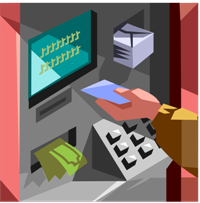|
What You Need to Know and Do as a Foreign Exchange Student in Bolivia Are you planning to be a foreign exchange student in Bolivia? Or is your family moving to Bolivia for an extended period of time? Future foreign students or exchange students to Bolivia often send in questions about living in Bolivia, what to pack, and more, and we thought it important to share this information for all foreign students in Bolivia. The questions we receive often sound like this:
"I am going to be a foreign exchange student in Bolivia soon. I'm very excited but also worried that I am ill-prepared. I was wondering if you had any specific tips for me including clothes, personal hygiene products, beauty products, the language, schooling, and/or money." Excellent questions from any student who will study in Bolivia for a while. Whether you arrive alone or move to Bolivia with your family, the time you spend here will change you. So let's make sure you have a positive experience in Bolivia. What schools may be like in BoliviaThe difference between public and private schools is vast. Read through our section on education in Bolivia and what public education is like as compared to private schools. Bolivia doesn't have a huge middle class. A very large percentage of the population is very poor and a very small percentage of the population is wealthy. Anyone who can afford a private school avoids public schools, most of which are poorly managed, and severely lacking in infrastructure, furnishings and materials, although this is slowly improving. Most exchange student situations take place with upper class or wealthy families simply because they are the families who can also afford to send their students overseas, but it isn't always the case. The Bolivian school year begins in February and ends in November. There is usually a 2-3 week break in July (the coldest winter month) and the 2 1/2 month summer vacation which takes place during the two hottest months of the year: the last half of November, all of December, and all of January. Read more about the climate in Bolivia (described by region) so you'll know what kind of weather you might expect and plan the type of clothing you'll want to bring. 
Most schools (public and private) require uniforms, and these must be purchased by the student. Often the school makes the uniforms and the parents purchase them at the beginning of the year. Some schools contract with a "confeccionista" (tailor or seamstress) and direct all parents to purchase their kids' uniforms from a specific one who already has the design and will embroider the school logo or emblem onto the uniform. Kids have to go for fittings and parents pay the seamstress directly. Most Bolivian schools work on a two-shift system. The school-day is only 4-5 hours long. Kids might study from 7 or 8 a.m. until noon or 1 p.m. The afternoon shift usually runs from 2 or 3 p.m. to 6 or 7 p.m. Some schools offer additional night school shifts from about 6 or 7 p.m. until about 10 p.m. Some private schools are offering an option called the "doble escolaridad" system for students to study from 7 or 8 a.m. until 3 p.m. Most foreign exchange students LOVE the fact that school is only half-day here. (Unless you're being placed at a foreign school like the American or British schools, in which case your school day will be just as long as it was in the USA or the UK, for example). Social and cultural etiquette and stuffBringing gifts for the host family. It's customary in Bolivia not to arrive at someone else's house with "empty hands". But it's also not really necessary to go overboard with that. Bringing one gift for each member of your host family is enough, and they don't have to be expensive. The thought really does count more than the dollar value of the gift. We would strongly suggest you read all of the pages we have on etiquette in Bolivia. It's not a list of rigid rules so don't freak out! Just consider it a good read and try to learn what you can from it and when you do live with your host family, be thoughtful, gracious, considerate and polite. Remember, if you get along well with them, you'll have possibly made friends for life, friends who will feel more like a second family. Many people who've been foreign exchange students are still friends with their exchange families years later and they visit each other!
You don't have to change, or adopt this culture, or attempt to change their ways. Simply follow your own beliefs while not being rude or conflicting with theirs. After all, you'll only be here for a very short time. Bolivians are not under any obligation to adjust to your lifestyle. You are here to learn about theirs. So keeping this in mind from the very beginning can make a very big different in terms of how much you enjoy, or don't enjoy, your foreign exchange situation. Check out these pages on social etiquette and dining etiquette. Again, no two families in the world are completely alike. You won't apply or use everything you'll read on these pages. Just follow your host family's lead and when you have any doubts, just ask them! They'll be expecting you to have a gazillion questions. (In fact, they'll probably relish answering them). These are the pages where you'll learn about gift giving and a lot of other social and cultural stuff. What to bring, what not to bring with youEverything depends on what region of Bolivia you'll be doing your foreign exchange in. If you'll be at a school in one of our three largest cities (La Paz, Cochabamba or Santa Cruz) you can pretty much get anything here that you can get in the US or Europe including thousands of different imported products. Remember, you're here for a new experience so your likes and dislikes may change while you're here. Again, based on some of the excellent questions we've received through our forums:

What you should bring with you are things that you absolutely need, such as any specific medications you use, contact lenses, glasses, inhalers, insuline, and any toiletries you absolutely love or can't do without, like for example, if your skin is sensitive and you have to use special cosmetics that don't cause skin allergies because you won't find those readily here (and when you do they are really expensive). I don't suggest bringing huge amounts but do bring what you think you'll need for the amount of time you'll stay because some items (especially gels, liquids, medicines) cannot be sent to you in the mail by your parents if you run out. Girls, you know those ummm... "hygiene products" only us girls use? You won't have any trouble getting them in large cities. In smaller cities you might and if you're doing your foreign exchange in a rural area bring a bunch. Again, if you have any specific items you absolutely must have while here, ask your host family to research their availability for you before you come. A word of warning: when it comes to medications, they may tell you "oh you can get that here" but you should be aware that even if you can get an equivalent medication here, it may be of another brand. Consult your doctor on this. If you'll be a foreign exchange student in one of our smaller cities or in a rural area, you might want to invest in bringing more of the items you need because cosmetics and personal care items are more expensive in small cities and rural areas. In general, in rural areas you should bring a good supply. In small cities, you might be able to find them, but in addition to the higher cost of imported items, they may be even higher in these areas because they are imported into Bolivia's large cities and then re-transported to smaller cities and towns (if they are available at all). If you like to use hair dryers, curling irons, or an electric razor, you should be aware that most of the electricity in Bolivia is 220V. Only La Paz is 110V. So if you bring any of those things you will also have to bring a set of adapters and/or purchase dual voltage appliances that can switch between 220V and 110V.
In smaller cities and rural areas, or if you are going to be a foreign exchange student at a public school or if you will be staying with a family that you know is not wealthy, be yourself, but try to be considerate of them. Don't flaunt your differences or your "perceived wealth". It could make them feel bad, especially if you'll be staying with a family that has other kids or teens. In general, if you'll be in La Paz or Cochabamba or anywhere else in Western Bolivia you'll find them to be a lot more conservative (in terms of how you dress) than in places like Santa Cruz. In any case, you'll want to stay away from extremes. If you're into like, heavy goth or extreme hairstyles or colors, or extreme tattooing, make-up, or any extreme fashions you might want to consider toning it down just for the time you're here. You should always be true to yourself, of course, but if any of your extremes seem to be causing your host family any stress (or if your habits embarrass them in front of their friends when they take you places), taking a break for a few months isn't the end of the world. Think about how you'd want a foreign exchange student to dress or act if they were living with your family. Let's put it this way - don't make your host family regret sharing their home and lives with you :-) You are here for a NEW experience after all. About money and exchange ratesThe Bolivian currency is called the "boliviano". Our site has a whole section that talks about money and banking. You'll definitely want to read everything about this before you travel to Bolivia: You'll find pictures of Bolivian money here. You'll find a currency converter on this page. Here's some really important information on how our currency works. When you get to Bolivia you'll need to exchange some of your dollars into bolivianos. Here's a page that explains how and where to exchange your money. Read our banking page for information on the use of ATMs and credit cards. If your parents ever need to send you money there are tons of Western Union offices here. Also, to learn all about mailing letters and packages to or from Bolivia, be sure to take a look at our page on international couriers in case they need to send you other stuff. Keep in mind that anything they send you will be considered and "importation" and you may have to pay taxes on the items they send you and do a lot of paperwork to get the package out of customs. Or not! It all depends on what is in there and its monetary value. ALWAYS have your host family check with authorities before any package your friends and family sent to Bolivia - just to be sure they don't send anything that is considered illegal in Bolivia. 
Couriers and money transfers can be very expensive. If you have your own bank account in your country, your parents can deposit money into your bank account and you will be able to withdraw funds pretty easily using your ATM card here in Bolivia if it has a Visa, Mastercard or Cirrus mark on it. But keep in mind that your bank in your country will charge you a much higher withdrawal fee when you make international withdrawals so you should keep them to a minimum. Some online banks don't charge overseas ATM fees anymore. For example: when I use an ATM in the United States to withdraw money from my US bank account, I am not charged anything. But when I use the same ATM card here in Bolivia to withdraw money from my US bank account, my bank charges me $9.00 (nine dollars). Ask your bank before you travel. Still, it costs less than having your parents or US customers send money via Western Union or transfers! Credit card usage is limited here. You can use a credit card at most supermarkets, high-end shops and stores at malls, at hotels, restaurants and tourist attractions, but for the most part, credit cards are not widely used here. Staying safe and staying in touchIn general, crime is on the rise in all parts of Bolivia. You should take the same precautions you would take in any large city anywhere else in the world. But in addition, you have to take some extra precautions as an exchange student because as a foreigner, you'll stand out. This isn't meant to be scary. It's just that thieves target tourists and even though you'll be living with a family here for an extended time, you'll look (and act) like a tourist frequently. For sure anytime you go somewhere new you'll be looking all around, taking pictures, maybe buying souvenirs. Your host family will probably go out of their way to take you all kinds of new places.
This page has information on preparing for your trip. This page has some warnings about the different types of crime in Bolivia. This page has additional general precautions. If you are an American exchange student, you might want to bookmark this page just for Americans. It's where we post US Embassy Warden messages which are basically updates, travel warnings, and messages about specific events that are happening around Bolivia or precautions to take. And no matter what country you are from, both you and your parents can follow our Blog. My blog updates automatically any time I update a page or add a new page to my website. So you and your parents will know immediately if there are any warnings or specific events you should be paying attention to while you're away from home. 
Before you travel to Bolivia, you might want to check into some inexpensive ways to stay in touch by phone and online and be sure your parent's computer is set up to make cheap calls to you or to your host family's home phone, or make sure they have Skype or know how to chat online. In most urban areas of Bolivia you'll have no problem with internet access (if you don't have access to a computer at your host family's house) and internet cafés are both abundant and really cheap. If you'll be in a rural area you may have some trouble with internet access, but even the smaller towns have internet cafés. Bolivians use most of the same smartphone apps that you may know. The most popular by far is Whatsapp... everyone has Whatsapp. Skype, Voxer and Snapchat, are also used. And we're all on Instagram, Facebook, Twitter, Pinterest, etc. Not all foreign smartphones work in Bolivia. When you get to Bolivia you may have to purchase a new Bolivian SIM card and/or switch your smartphone over to a local carrier during the time you are here. Or you may consider buying a smartphone in Bolivia that you know will work, and just using pre-paid phone cards, which are very popular here since a lot of people cannot afford contract phones anyway. Most importantly, please register with your country's Embassy or consulate in Bolivia as soon as you get here. That way, if something should happen while you're here, your embassy will know who you are, where you are living in Bolivia, and can contact your parents if there is any emergency. See this list for some of the embassies and consulates of other countries in Bolivia. Learn everything you can about BoliviaFor more about Bolivia's history, geography, culture, traditions, population, environment and more, check out our Bolivia for Kids section. Even though it's set up to be easily navigated by kids (we use a lot of pictures for them) most of the pages the banners lead to are written to be understood by kids, teens, teachers and parents. You can also read our gigantic section on facts about Bolivia. When you're ready to make all your travel plans, read all you can about visas, travel insurance, finding the cheapest flights, altitude sickness, yellow fever shots, and everything else you'll need to know if our travel information section. If you plan to brush up on your Spanish before your arrive, see these Spanish programs you can check out. If you have any additional questions or worries about anything or need more information, post as many messages as you like in our living in Bolivia forum. You can also use any of our specific regional forums here. If you have any questions you'd like answered privately, use this private form to contact us. This is the BoliviaBella.com webmaster. If you ever have a problem while you are in Bolivia, your first points of contact should be always your parents, your foreign exchange program, and your country's embassy or consulate. For non-emergency general information, you can also contact BoliviaBella.com. These are some of the expat services we provide.     |


